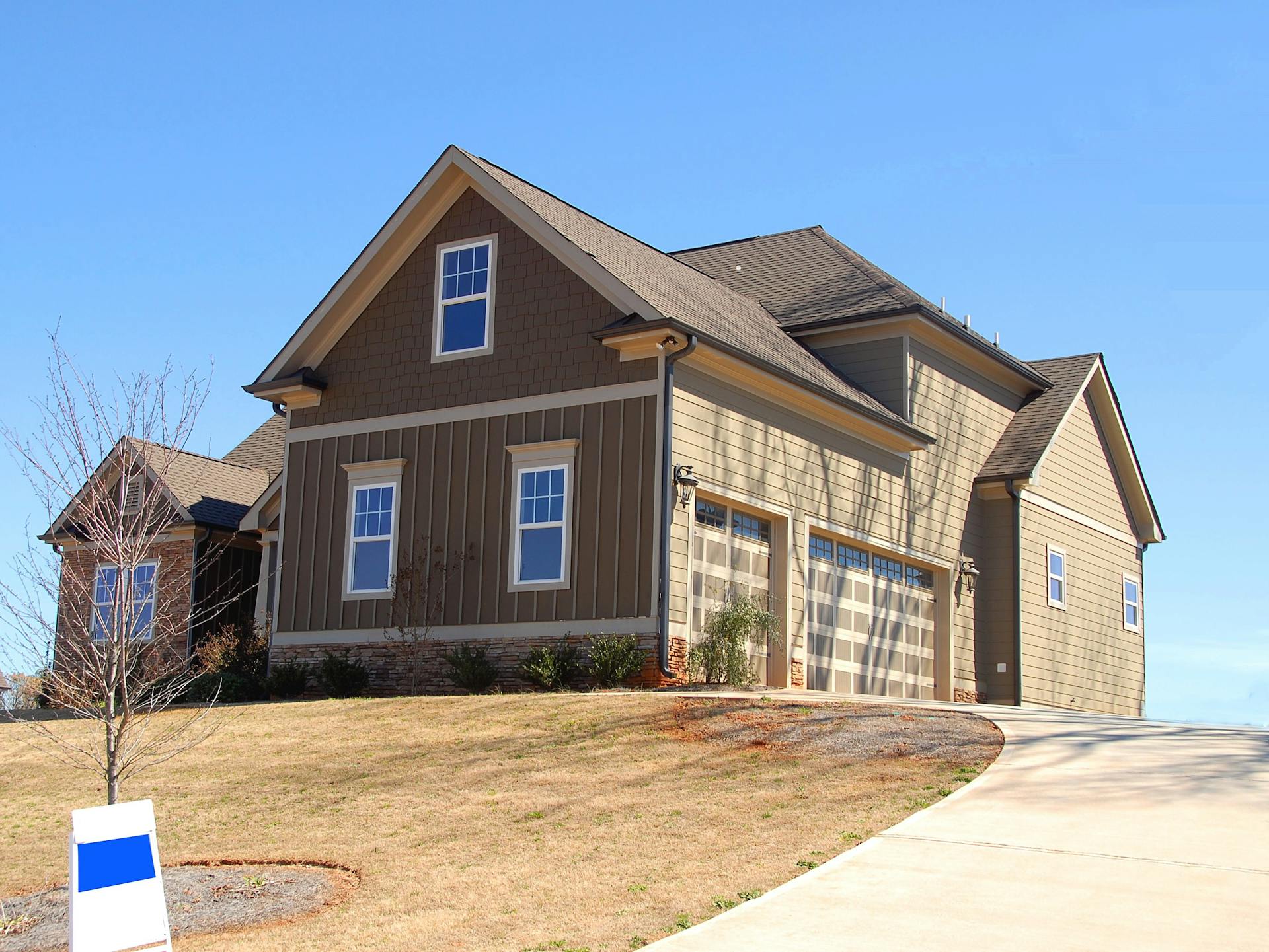
What is a co-op? If you've ever wondered what it means to live in a housing cooperative, you're not alone. Co-op housing differs from your garden-variety single-family apartment or condo living in some significant ways. On February 20, 2023, we'll take a closer look at this unique form of housing and explore how it works in big cities like Washington DC.
So, what exactly is a housing cooperative? A co-op is a type of home ownership arrangement where residents collectively own and operate their building or complex. Instead of owning their individual units outright, co-op members hold shares in the corporation that owns the entire property. This way of living has its roots in European communities but has become increasingly common in North America over the last century. While there are some ways co-op housing operates similarly to other forms of shared living, there are also key differences worth noting.
Buying A Co-Op Vs. Buying A Condo
Buying a co-op is not the same as buying a condo. While they may seem similar, there are major differences between the two. Co-ops operate in an identical fashion lets say that you're buying into a corporation, whereas condos are more like traditional real estate purchases. One of the biggest differences between the two is that when you buy a co-op, you don't actually own your unit – instead, you own a portion of the building and all of its assets. So before deciding on whether to buy a co-op or condo, it's important to understand these differences and choose what best suits your needs.
1. Buying A Condo
When buying a condo, you're typically buying an individual unit in a larger building. This means that you own the interior contents of your unit, but you're effectively buying ownership in the entire property as well. An added bonus is that renovating and upgrading your individual unit is generally easier than performing DIY updates on a standalone home. Acquiring financing for a condo unit purchase is also a relative measure easier than purchasing a co-op. Just be sure to check out the rules and regulations for the building where you'll reside before making an offer!
2. Buying A Co-Op
When buying a co-op, you're effectively buying shares in the corporation that owns the building. The residence buying process is different from purchasing a traditional unit; you'll have fewer options, and there's a demanding application process to go through, including being financially vetted by the co-op board. However, if you're approved to purchase shares in a specific unit, you'll enjoy co-op living where everyone who resides on-premises enjoys access to common areas. Rocket Mortgage offers co-op financing and can help simplify your financial process, including getting verified approval letters.
Discovering the Inner Workings of Cooperative Work
When you walk into a typical grocery store, you see aisles full of products and checkout registers where employees are ringing customers' purchases. However, behind the scenes, there is a lot more going on than meets the eye. A grocery store cooperative or food co-op operates slightly differently than a typical grocery store.
Co-op stocking is done differently because cooperatives limit the number of products they carry to ensure they provide special incentives to their members. Joining cooperatives means becoming part of a community focus that values shared values meaning and common goals. The founding members of a co-op often have a place people come together to create an inclusive economy that benefits everyone.
By discovering the inner workings of cooperative work, you will get an insight into how this type of business model can create a better future for us all. Co-ops are not just about making money; they are about creating a community that works together for the greater good. So if you want to be part of something bigger and help build a more sustainable future for everyone, join your local food co-op today!
Securing Financing for Your Co-op Dream

If you're looking to buy shares in a co-op housing community, securing financing is an essential step. Most co-ops require residents to purchase shares before moving in, and this often involves taking out a share loan or co-op loan. The financing process can be complex, so it's important to understand your options and work closely with your co-op's directors to ensure a smooth transaction.
One of the first things you'll need to do when financing your co-op purchase is to determine the type of loan that's right for you. Share loans are typically used for smaller purchases, while co-op loans are better suited for larger planned expenses like major repairs or renovations. You'll also need to ensure that your co-op operates with sufficient financial reserves and has an underlying mortgage in place.
Before applying for financing, make sure you have all of the necessary documentation and run a credit check on yourself. Larger co-ops may require a board interview as part of the approval process, so be prepared to explain why you want to buy shares in the community and how you plan to contribute. Working closely with your board of directors sets you up for success in securing financing and achieving your dream of living in a co-op community.
Discover the Meaning of a Cooperative and its Benefits.
In simple terms, cooperatives are autonomous associations of persons united voluntarily to meet their common economic and social needs through a democratically controlled enterprise. The International Co-operative Alliance defines cooperatives as "an autonomous association of persons united voluntarily to meet their common economic, social, and cultural needs and aspirations through a jointly-owned and democratically-controlled enterprise." Cooperatives bring together individuals with similar interests to pool resources and skills, providing members access to goods, services, and markets that they may not have been able to access individually.
Discover the Wonders of a Home in a Co-op Community

Have you ever heard of a housing cooperative or co-op? It's a kind of joint ownership where people come together to buy and manage a housing unit, forming a nonprofit corporation. Joint owners form the corporation and own shares based on their contribution towards the total cost.
Co-ops differ from traditional homeownership since they don't own real property; instead, they have shares allocated based on equity. Each member has the right to occupy their unit but doesn't own it independently. While it may sound confusing at first, co-ops offer many benefits that make them an attractive choice for homebuyers.
If you're looking for personalized lender match options for a highly rated lender, look no further! Co-ops often work with lenders who are familiar with this type of ownership structure and can help you navigate through it. Plus, living in a co-op community means being part of something bigger than yourself - the shared responsibility and decision-making create strong bonds among residents. So why not explore your local zip code for available co-op units today?
Discover the Inner-Workings of Co-Op Housing!

If you've heard the term "co-op" briefly touched upon in conversation, you might be wondering what it is. Well, a co-op is a nonprofit organization that owns and operates a building or complex of buildings, with the co-op owners also being shareholders in the organization. The co-op running smoothly depends on the co-op board setting policies and making decisions that govern life within the complex.
To ensure that everyone's interests are accounted for, policies are handed down through by-laws commonly established by a co-op association. Collecting membership fees from shareholders helps to cover property taxes, building maintenance, and other amenities. However, unlike traditional homeownership models, there are underlying mortgages attached to each unit.
As shareholders in a co-op organization, co-ops mutual financial obligations include payments to cover common expenses such as building maintenance, upkeep and renovations for common areas. A management company may be hired to handle day-to-day issues like building maintenance on behalf of the cop-op board. Understanding how these financial and organizational arrangements work together can help prospective buyers make informed decisions about whether or not a co-op is right for them.
The Importance of Co-ops in Today's World: Why They Matter
Co-ops, or cooperatives, are businesses that are owned and controlled by its individual member-owners. From a business point-of-view, cooperatives offer limited liability to its members and often provide financial assistance during times of financial difficulties. On a more democratic point-of-view, cooperatives matter today because they rebalance power and create shared prosperity allowing people owning small businesses to compete on a playing field people don't normally have access to.
Another reason why co-ops matter is that they help solve problems faced by members when one of them leaves the group. For example, if a member moves away or if an original member in an area dies, their shares can be transferred to another member-owner without any disruption to the business operations. This is important because it ensures that the cooperative model continues regardless of changes in membership.
Finally, worker co-ops are turning privately-held businesses into employee-owned companies as baby-boomer business owners approach retirement age. The productivity level continues to be high in these worker co-ops as employees effectively turn into owners who work towards a common goal. This means that in future years we'll see a significant portion of average companies becoming worker co-op which could make the cooperative model even more popular than it is today.
Frequently Asked Questions
What is a co-op in real estate?
A co-op in real estate is a type of housing where residents own shares in the building and have the right to occupy a specific unit. It is different from a condominium in that ownership is based on shares rather than individual units.
How is a co-op different from a traditional apartment or house?
A co-op is different from a traditional apartment or house because instead of owning the property itself, you own shares in a corporation that owns the property. This means that decisions about the building are made collectively by shareholders rather than individually by owners.
Should I buy into a housing co-op?
Buying into a housing co-op can be a great option for those looking for affordable homeownership and a close-knit community. However, it's important to do your research and understand the unique ownership structure before making a decision.
Is co-op housing the same as condo living?
No, co-op housing and condo living are not the same. In a co-op, residents own shares in the building corporation and have a say in management decisions, while condo owners own their individual units and have more autonomy.
What are the disadvantages of living in a co-op?
Some potential disadvantages of living in a co-op include having less control over decision-making, potentially restrictive rules and regulations, and the possibility of conflicts with other members.
Featured Images: pexels.com


